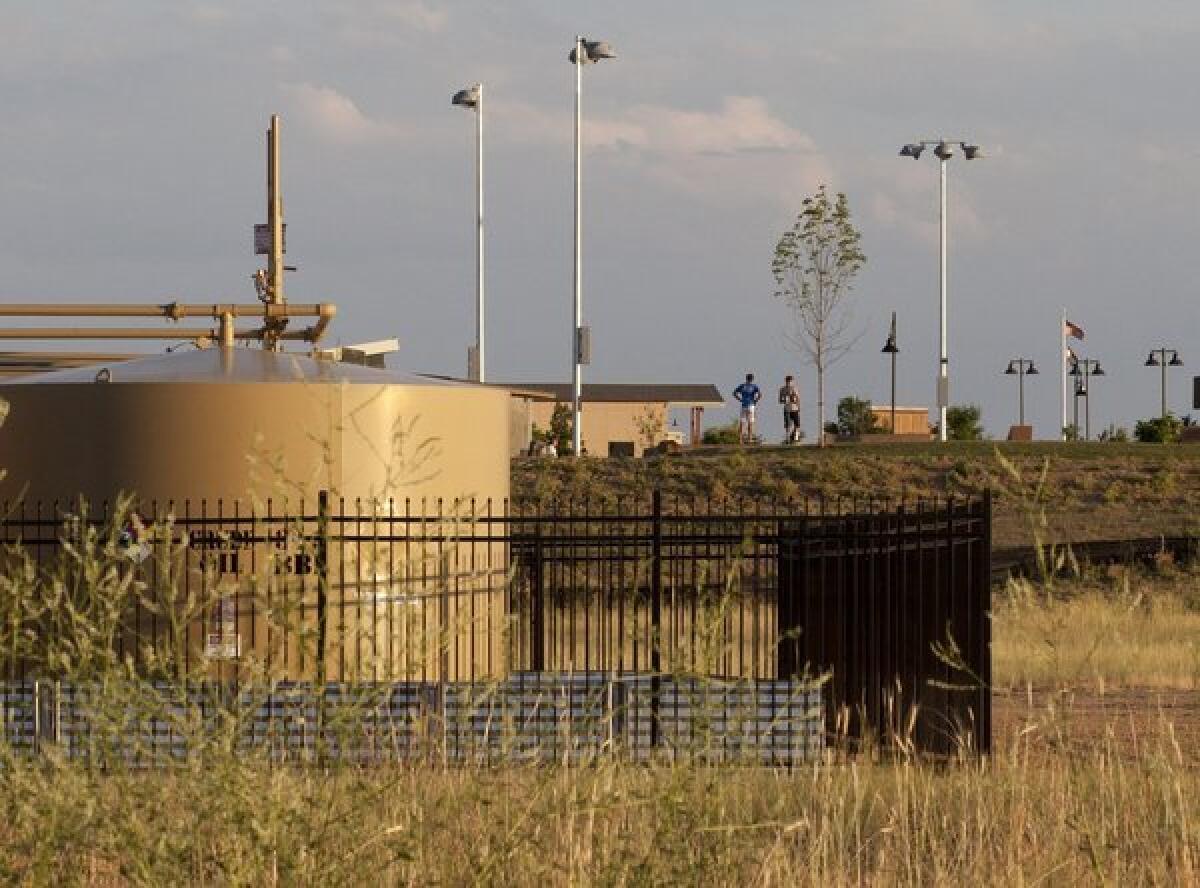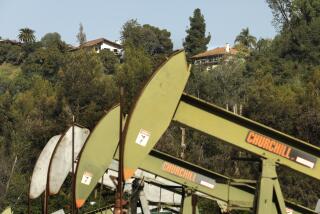Colorado proposes reducing methane leaks from energy production

Colorado proposed new rules Monday to reduce methane leaks from oil and gas operations, the first effort in the country to address emissions of the greenhouse gas that is a byproduct of the domestic fossil fuel boom.
Carbon dioxide from the combustion of fossil fuels is the main driver of climate change, but while less methane is emitted overall, it is an even more potent heat-trapping gas than carbon.
Methane emissions in the United States dropped slightly from 2011 to 2012. But such emissions from oil and gas operations have risen in Colorado and other states where energy production is roaring, according to the Environmental Protection Agency.
The state has rules in place to curb emissions of methane, the primary component of natural gas, during drilling. The proposed new rules call for detecting and repairing methane leaks throughout a company’s infrastructure once a well is producing: at equipment at the well site, above-ground pipelines and at compressor stations.
“The rules will help Colorado prepare for anticipated growth in energy development while protecting public health and the environment,” Gov. John Hickenlooper said in a statement. “They represent a significant step forward in addressing a wider range of emissions that before now have not been directly regulated.”
PHOTOS: 2013’s memorable political moments
The rules would also reduce emissions of volatile organic compounds, or VOCs, an air pollutant that can be created from the production and burning of fossil fuels. Because high output of VOCs tracks with high methane pollution, the new rules base their monitoring requirements on the tons of VOCs companies generate annually.
Under the rules, the bigger the polluter, the more often it would have to monitor its infrastructure for leaks, which would have to be repaired within 15 days. Companies would have to report their repairs and allow state inspectors to check facilities for leaks.
The proposed rules were drawn up in discussions between the state; the Environmental Defense Fund; and three major oil and gas producers, Noble Energy, Encana and Anadarko. The state will take public comment on the proposal for 90 days, and a public hearing will be held in February.
ALSO:
Midwest tornadoes: ‘Devastation. Sadness,’ mayor says
2 miners killed and 20 injured in Colorado mining accident
New Jersey’s gay conversion therapy ban faces another test
Twitter: @neelaeast
More to Read
Sign up for Essential California
The most important California stories and recommendations in your inbox every morning.
You may occasionally receive promotional content from the Los Angeles Times.











